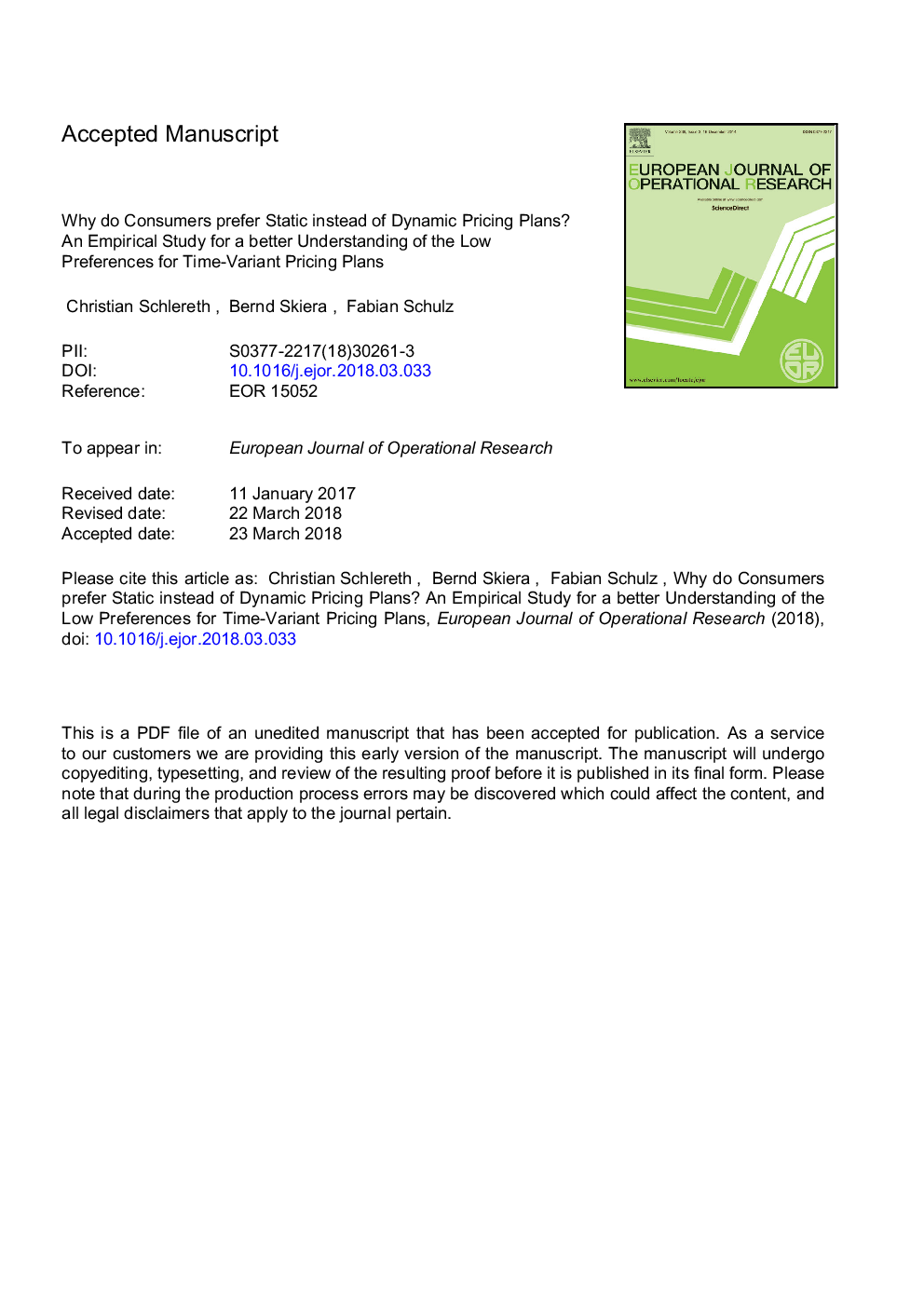| Article ID | Journal | Published Year | Pages | File Type |
|---|---|---|---|---|
| 6894706 | European Journal of Operational Research | 2018 | 33 Pages |
Abstract
Time-variant pricing plans in electricity markets aim to mitigate mismatches between demand and supply by incentivizing consumers to shift their demand from costly peak to cheaper off-peak times. Their implementation can be manifold; they could depend statically on the time of the day (i.e., time-of-use pricing) or adjust prices dynamically in nearly real time (real-time pricing). If consumers reduced demand in peak times, then they would realize lower prices and providers would operate at lower costs. Still, consumers frequently refuse time-variant pricing plans. The authors develop a new conceptual framework to study and explain this behavior. It supports the optimal choice of time-variant pricing plans by jointly considering price fairness and economic antecedents. In a discrete choice experiment, the authors use a hierarchical Bayes covariate extended logit estimation to measure respondents' probability of switching from a time-invariant pricing plan to a time-variant pricing plan. The results show that economic antecedents, such as price consciousness and flexibility, have a stronger effect on the choice of a time-variant pricing plan than price fairness considerations; cost insurance is a promising instrument for increasing acceptance of dynamic pricing plans. The results also suggest new ways to target prospective customers.
Related Topics
Physical Sciences and Engineering
Computer Science
Computer Science (General)
Authors
Christian Schlereth, Bernd Skiera, Fabian Schulz,
